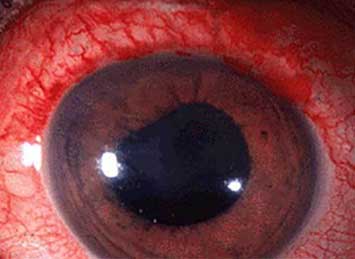(07) 5655 2156
Mon - Fri: 9am - 4pm
Sat - Sun: By Appointment
- (07) 5609 6020
Gold Coast Private Hospital
Suite 3, Ground Floor
14 Hill St, Southport Qld 4215 (Directions)
Mon - Fri: 9am - 4pm
Sat - Sun: By Appointment
Suite 3, Ground Floor
14 Hill St, Southport Qld 4215 (Directions)




What is Uveitis?
Uveitis is the name given to a wide ranging group of disease which ultimately cause inflammation of the different layers of the eye. This can occur from the outer tough lining of the eye called the sclera, to the back of the inside of the eye called the retina. Most commonly however it affects the uvea, which is composed of the iris, ciliary body and choroid.
Types of Uveitis
Acute Anterior Uveitis
The most common type of uveitis is called Acute Anterior Uveitis (AAU) which involves inflammation in the front third of the eye, usually from inflammation of the iris and Ciliary Body. For this reason, it is often called iritis. Symptoms often include pain, photophobia and blurred vision.
Intermediate Uveitis
Intermediate Uveitis involves inflammation in the middle part of the eye called the vitreous. Symptoms often include blurred vision and floaters.
Posterior Uveitis
Posterior uveitis can affect all the structures in the back of the eye such as the optic nerve, blood vessels and retina. Symptoms can vary but can include pain, blurry vision, flashes and floaters. Vary rarely, inflammation can occur in all three areas and is called panuveitis.
Causes of Uveitis
There are many causes of uveitis however most commonly, especially with acute anterior uveitis, there is never any cause found and this is termed idiopathic. If required, your specialist will ask you many questions about your general health such as joint pain or skin rashes and may send you for a series of blood tests and XRAYs. Many medical conditions, particularly autoimmune disease, such as rheumatoid arthritis, ankylosing spondylitis, sarcoidosis or inflammatory bowel disease can cause uveitis. Rarely infections, such as the cold sore virus (HSV) or chicken pox virus (VZV) can be the underlying cause of uveitis.
Treatment of Uveitis
Treatment of uveitis depends on the underlying cause of the condition. However most commonly, especially for Acute Anterior Uveitis, steroid or anti-inflammatory eye drops will be necessary and need to be installed very frequently throughout the day. Sometimes people may require injections or even tablet steroids to control the disease. In some cases, you may need stronger immune therapy, which will be managed with a physician as well as your eye specialist.
